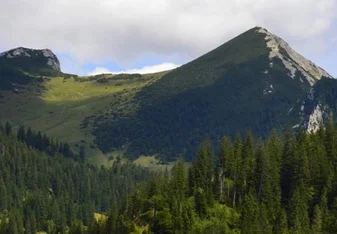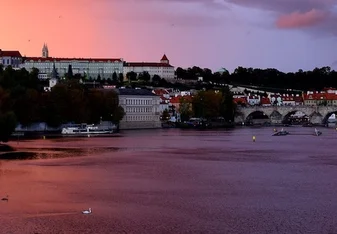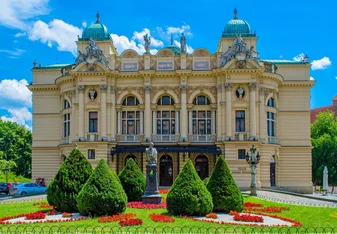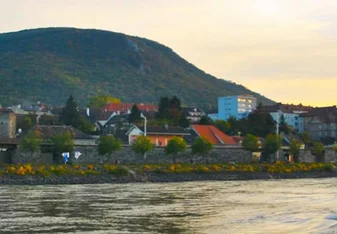Study Abroad Programs in Slovenia
Study Abroad Programs in Slovenia
About
Slovenia is not the most obvious destination to pursue your studies in but as one of the most well-read nations in the world where poets, composers, and architects are revered and honored on bank notes and city squares far more frequently than rulers, it is clear that knowledge here reigns supreme.
The quiet, peace, and laid back nature of Slovenian cities provide the perfect backdrop for inquisitive minds. In your spare time, there are a plethora of activities to choose, from the daring like paragliding and canyoning to the cultural like theatres, museums and an eclectic array of music and art.
In addition, Slovenians are mostly surprisingly fluent in English, therefore, there are more opportunities to mingle with locals, get involved in student life and also find the program that will lead you straight to accomplishing your career goals in life.
Where to Go
Ljubljana
The picturesque but hard to pronounce city of Ljubljana, also the capital, is by far the most obvious choice. It boasts the biggest and oldest city in Slovenia and world renown University of Ljubljana which offers a wide variety of English language programs that cater to the over 1400 foreign students which flock there each year.
Ljubljana is also a burgeoning destination with picturesque cobblestone streets and historical landmarks such as the city architect's grand achievement: The National and University Library, a meandering river studded with diverse cafes and bistros all in a compact pedestrian-friendly space, What more could a student want?
Maribor
The second largest city in Slovenia, Maribor is nestled on the banks of the Drava, a large wild river, which flows from the nearby Austrian Alps. An important cultural, business and university hub in Slovenia, there are several universities including the University of Maribor -- the second largest in Slovenia -- which welcomes around 500 international students each year. Like Ljubljana it is watched over by a castle and has a number of historical monuments.
Nova Gorica
A much smaller city set on the Italian border, Nova Gorica is huge for students and is known as the city of roses. It has a reputable law school which offers many courses of study in English as well as the University of Nova Gorica. Plus, if you fancy a trip to Italy, the neighboring Italian village, Gorizia is just a five-minute walk from town.
Koper
The coastal city is the location of the University of Primorska which welcomes around 60 foreign exchange students each year to its sunny Adriatic Sea-swept doors. Since the city is small classes also may be held in Portorož or Izola, two coastal towns which are also popular with tourists. Unsurprisingly, the Faculty of Tourism Studies is the leading program in Slovenia.
Planning Your Trip
Once you've decided what you wish to study you should think about the location that would best suit you based on your needs and interests. If you find you need a change of air, Slovenia's total landmass of just 7,827 square miles (a bit smaller than the state of New Jersey) makes it easy to explore on day trips. Diverse topography awaits you in the form of the Julian Alps, the karstic region of cave systems, the Pannonian and Danubian lowlands and hills and the Mediterranean coast.
Choosing a Study Abroad Program in Slovenia
You can find a list of programs offered for the upcoming year in English from Bachelors to PhD and summer courses all on the Slovenia study website. The majority are masters programs which are open to all people with the applicable education backgrounds who wish to apply. Application deadlines are generally on a rolling basis so you can apply at multiple times depending on how much space is available. Read the descriptions and requirements carefully and if you feel a program suits your background you should first confirm they are currently accepting applications before applying.
Housing
Ljubljana is probably the most expensive place to live, but it is still relatively cheap compared to the rest of Europe. Dormitories are only offered to students on a scholarship, but you will find a vast and diverse array of private accommodation available for any period. The most affordable option is a private room in a shared apartment which starts at about €120 ($150) per month.
In Maribor, dormitories are available to anyone on a first-come-first served basis. In towns outside Ljubljana such as Koper the University takes charge of finding accommodation for students, all you have to do is fill out a housing request form.
Visas
Slovenia is a European Union member country and also a Schengen member, therefore if you hold nationality in one of the member states you do not need a visa to study in Slovenia.
Americans, Australians, and others will need to apply for a Visa D (long-term stay) if they plan on staying for more than three months. The application should begin three months before the start date of the program and will usually need to be done in person at a Consulate or diplomatic mission of the Republic of Slovenia. Proof of enrollment will be needed and health insurance coverage and other requirements apply, many of which the university can help you with.
Social Life & Student Culture
There are plenty of outdoor activities and sports available with your student card and many regional clubs and associations are available to students. Šou, the student organization organizes weekly meetings for students in the Universities of Ljubljana, Maribor, and Primorska so they can get involved in whatever they want and learn about Slovenian culture. Slovenians stay active; they are avid skiers, hikers, soccer players and more.
Hungry? Meals at student cafeterias are just €3 ($4) and there are numerous late night fast food windows serving up hot bureks, kind of like pastry pockets filled with various items but commonly cheese, meat or pizza or try a local fast-food favorite, Horse Burgers.
Health & Safety
The mandatory healthcare will cover all basic health needs and being a small country lines are not long and you shouldn't ever have problem getting treated in a timely manner. Health regulations are high being a European Union member country and there are no particular health precautions you need to take.
Slovenia is a very safe country. Pickpockets are extremely rare. The only thing to watch out for are the occasionally speeding driver or motorcyclist. However, bike lanes in cities are ever-present and it is only on country roads where road safety and signs should be regarded closely as you would in any new place you are not yet familiar with. However, if anything you will more likely marvel at how rough your own home city is in comparison.
Costs & Funding
Slovenia switched their former currency, tolars, for the Euro in 2005. There was a brief hike in prices but since then they remain fairly low and comparable to neighboring Croatia which hasn't made the switch. A bus pass costs 1.20 in the capital fora 90-minute journey. Grocery prices are low and there are an array of low cost fast food options.
Typical Program Cost
The tuition fee per year for a typical Masters program is €4,000 ($5,000). The tuition is waived for EU citizens without equivalent degrees already. A doctorate program costs between €3,000-€12,000 ($3,500-$15,000). There is also an annual registration fee which is usually under €100 ($125). All students are also required to register for health coverage.
If you are ready to tackle a subject in the Slovenian language but don't have the required B2 (upper-intermediate) level then you can take a three month course specifically for foreign students costs €1,320 ($1600). However, students with no prior knowledge will need further study to manage in the tricky slavic lingo.
Funding Options
There is not a government guaranteed student loan system in place in Slovenia. However, private banks can offer loans to full-time students with favorable interest rates and repayment schedules.
Doctoral students can also be employed as junior researchers, paid a salary and receive funding for their research and studies as well as free health insurance.
Scholarships
Various public and state foundations offer a wide range of scholarships. Students from a number of foreign countries, especially old Yugoslavia and Egypt, Tunisia or even India. Slovenia participates in the European Erasmus Mundus program for advanced study at Masters and Doctoral level.











